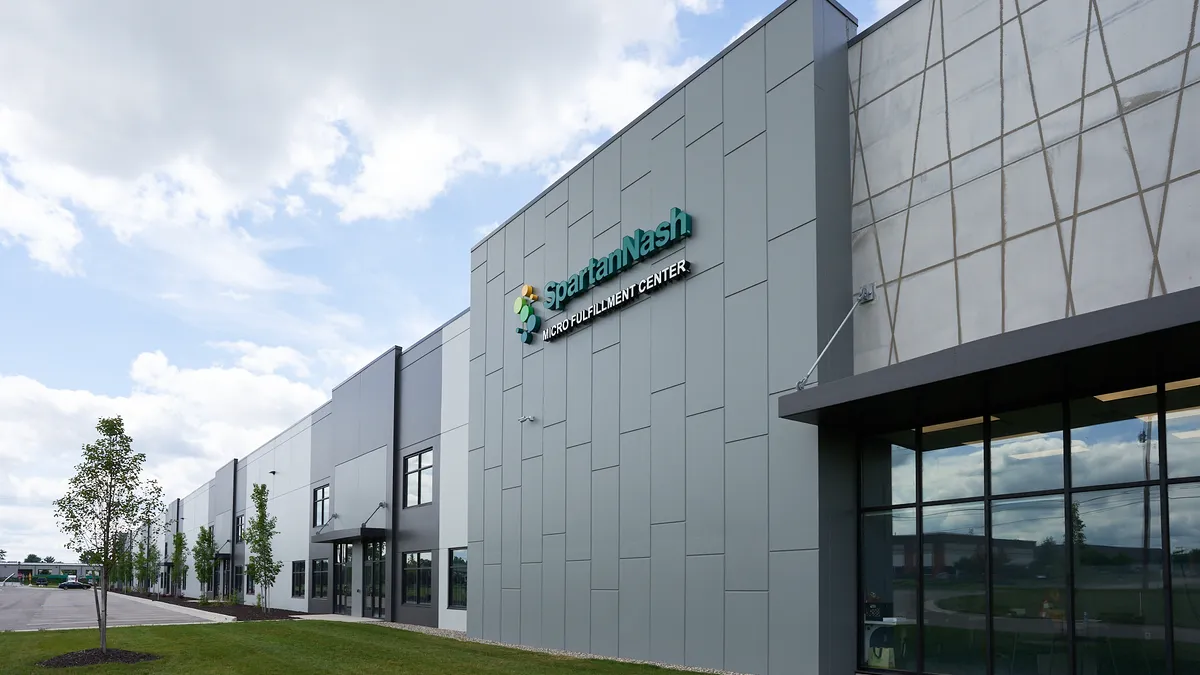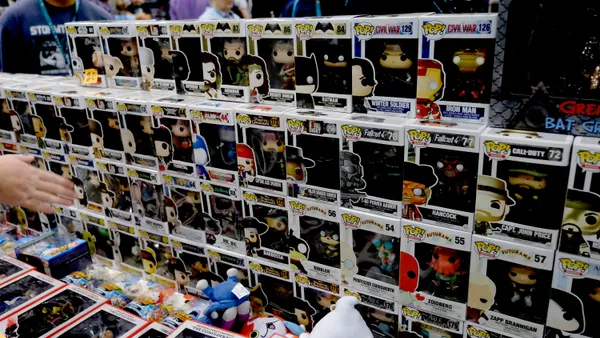Dive Brief:
- SpartanNash plans to open its first micro-fulfillment center on July 26 to support orders placed through its Fast Lane online grocery service, the Midwestern grocery and wholesaler announced in a press release on Wednesday
- The 55,000-square-foot MFC in Caledonia, Michigan, will accommodate 16,000 items and process orders for 24 SpartanNash stores in West Michigan under the company's Ada Fresh Market, D&W Fresh Market, Family Fare and Forest Hills Foods banners. Most of the stores the MFC will serve are located in the Grand Rapids and Holland, Michigan, areas.
- SpartanNash joins a growing number of grocers that are deploying MFC technology to help speed up their e-commerce operations amid heightened demand for grocery pickup and delivery services spurred by the pandemic.
Dive Insight:
The decision by SpartanNash to invest in an MFC promises to substantially increase the company's ability to process orders from customers looking to avoid visiting one of its stores to shop for groceries.
The facility will be able to handle 1,000 Fast Lane orders per day once it is at full speed, which will more than double the service's current capacity, according to the announcement. In addition, the MFC will cut the need for space and products in stores to be devoted to serving Fast Lane customers and increase the assortment available through the online program, which began in 2017.
The MFC will also boost SpartanNash's e-commerce order-fulfillment efficiency between three and four times compared with in-store order picking, Tom Swanson, the company's executive vice president and general manager of corporate retail, said in a statement.
SpartanNash is among an expanding group of supermarket operators that are turning to MFCs to help manage the increased customer interest in online grocery shopping they are seeing. Over the past year, grocers including H-E-B, H Mart and The Giant Company have all announced plans for automated e-commerce fulfillment centers, while Albertsons is in the process of building out a fleet of MFCs that is expected to include nine facilities by the end of 2021. In January, Walmart said it will test MFC technology at dozens of store locations.
Despite the uptick in interest among grocers in installing MFCs, industry analysts and executives note the facilities pose a range of challenges, in part because they can be costly to build and maintain. Another issue is that MFCs have limited storage capacity, which can require employees to traverse store aisles to obtain items the automated picking systems don't have on hand.
"Retailers everywhere are looking at this. They're experimenting, they're deploying these systems and investing in them. But so far, there's also been enough dissatisfaction or complexity or lack of economic return that you don't see a large-scale rollout yet," John Lert, founder and CEO of MFC supplier Alert Innovation, said in a recent interview.
















